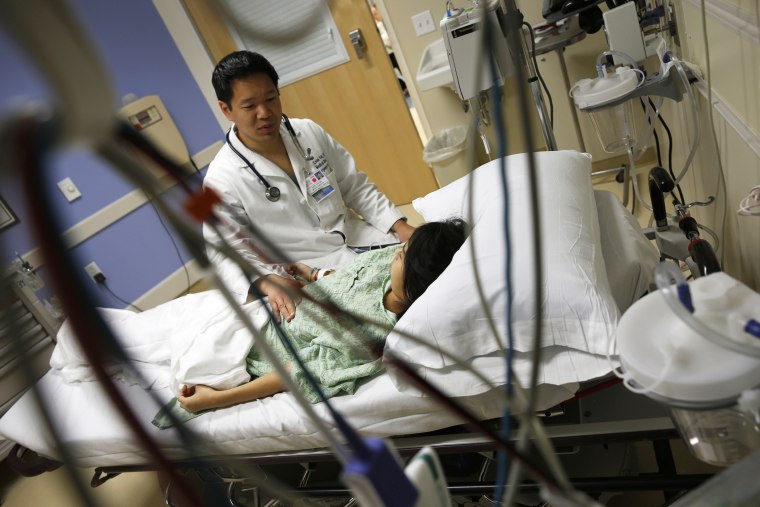The benefits of having health insurance, as opposed to the alternative, are so numerous it's hard to know where to start. The list is intuitively obvious whether you've been following the political debate or not: there's health security, economic security, societal benefits, etc.
But at its most basic level, having access to affordable medical care is also life-saving. When policymakers reform dysfunctional health care systems and extend coverage to the uninsured, it can mean the difference
between life and death -- a fact we were reminded of yesterday.
The death rate in Massachusetts dropped significantly after it adopted mandatory health care coverage in 2006, a study released Monday found, offering evidence that the country's first experiment with universal coverage -- and the model for crucial parts of President Obama's health care law -- has saved lives, health economists say. The study tallied deaths in Massachusetts from 2001 to 2010 and found that the mortality rate -- the number of deaths per 100,000 people -- fell by about 3 percent in the four years after the law went into effect. The decline was steepest in counties with the highest proportions of poor and previously uninsured people. In contrast, the mortality rate in a control group of counties similar to Massachusetts in other states was largely unchanged. A national 3 percent decline in mortality among adults under 65 would mean about 17,000 fewer deaths a year.
The entirety of the report, published by the Annals of Internal Medicine, is online
here.
In the political debate, health care advocates often say repeal crusaders are being needlessly cruel, pushing millions into peril: the uninsured, the argument goes, are one serious illness away from economic ruin, which the rest of us will invariably have to pay for anyway.
But we can go further and bring the argument into even sharper focus. Because the Massachusetts model was the basis for "Obamacare," it's hardly unreasonable to extrapolate and expect similar results on a national scale. And at the risk of sounding over-dramatic, the Massachusetts study suggests those hoping to take health care benefits away from millions of Americans appear to be putting many lives at risk out of partisan or ideological spite.
Keep in mind, the Massachusetts study scrutinized the last decade, before and after Mitt Romney's reform model took effect, which means the improved mortality rate doesn't even apply to senior citizens -- the folks most likely to die -- because they were covered by Medicare anyway.
It makes the results that much more striking -- and the push to destroy the Affordable Care Act that much more inexplicable.
Jonathan Cohn did
a nice job highlighting how the study reached its conclusions.
Enter three well-credentialed, well-respected health care economists -- Benjamin Sommers (who's also a physician) and Katherine Baicker, from the Harvard School of Public Health; and Sharon Long, a senior fellow at the Urban Institute. The trio obtained figures on mortality and, better still, they were able to isolate causes of mortality "amenable to health care." In other words, they were able to get data on cancers, various cardiac problems, and other conditions that, with better medical care, people should be more likely to survive. Then they compared how the people in Massachusetts fared relative to groups of people from around New England, who were similar in almost every meaningful way -- age, income, and so on -- except that they lived in states where similar expansions of health insurance were not underway. The results were clear. In those other places, outside of Massachusetts, the death rate from "amenable" causes went down by only a little bit and the overall death rate actually increased a tad. But in Massachusetts, deaths overall and deaths from "amenable" causes both went down -- significantly. The authors calculated that, for every 830 people who got insurance in Massachusetts, about one person avoided a premature death.
That may not sound like much of a difference -- unless that 1 in 830 happens to be you or someone you care about.
For that matter, in a state of nearly 7 million people, that's an amazing breakthrough, and in a nation of nearly 314 million, it's several thousand people.
It would appear, then, that policymakers have to decide for themselves whether or not that's a worthy goal.
